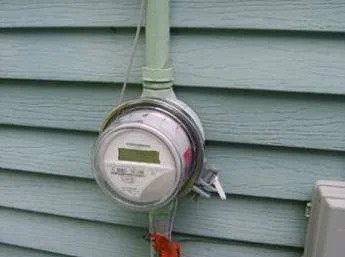Today we use more electrical devices drawing more power than 50 years ago. The electrical panels and meters in our homes are rated for a certain amperage. The standard today is 100 amps, but older homes commonly are rated for much less (70 amps were common). If you try to draw more power than your electrical system is rated for, a circuit breaker will be tripped.
Another thing to check for in older homes is the number of circuits. Many older home’s electrical systems used only 2 or 3 circuits throughout the entire home. There are many devices that need to be on their own circuit, such as your furnace and air conditioner. Three circuits is insufficient with the demands of the average family’s power consumption.
Grounding
Grounding of your electrical system is an important safety feature that older homes may lack. Grounding ensures that electricity will go to the ground if an electrical short or problem occurs. Without it, like most older meters, the electrical potential is left waiting for a means to travel to the ground–which could be through you via a deadly shock if you were to touch it.
Aluminum wire is softer than copper and not as strong, making it more prone to damage. Broken or damaged wires can create hotspots and pose a fire risk. But because the aluminum is softer it can be easier to install with significant cost savings. Though the savings may not be worth the risks and upkeep.
To compensate for the lower conductivity level of aluminum wires, a thicker gauge wire (12 gauge) is used to match the copper wire equivalent (14 gauge). Where the wiring is exposed and prone to rusting, conductivity issues arise. Rusty aluminum forms a white oxide which creates a problematic electrical connection. In contrast, rusty copper will remain conductive. Rust on aluminum wires can cause overheating issues which can lead to fires.
Another problem with aluminum wiring is that it expands and contracts more than copper does, and as such is prone to creeping. The aluminum wire can expand and contract so much that it can slip out from its connections which can cause sparking and lead to a fire.

